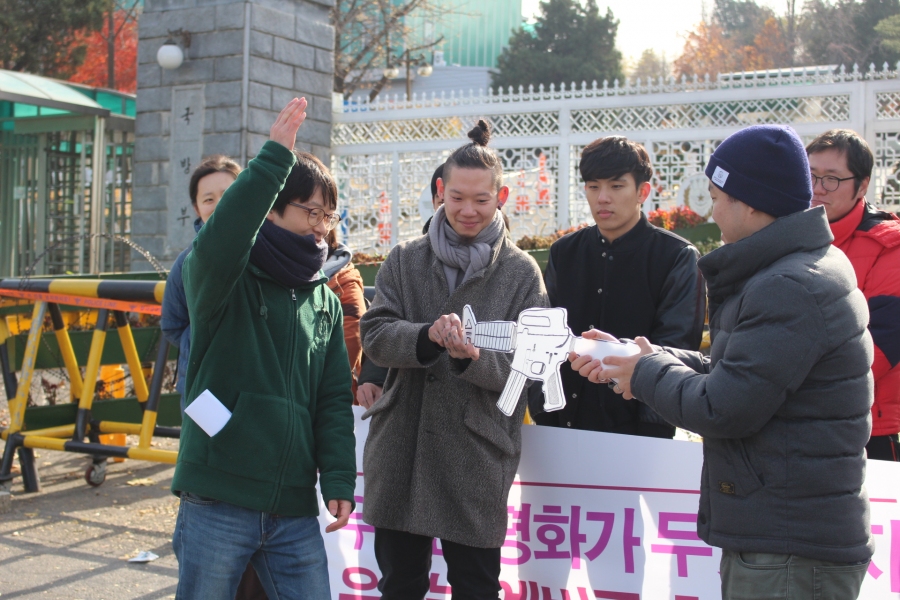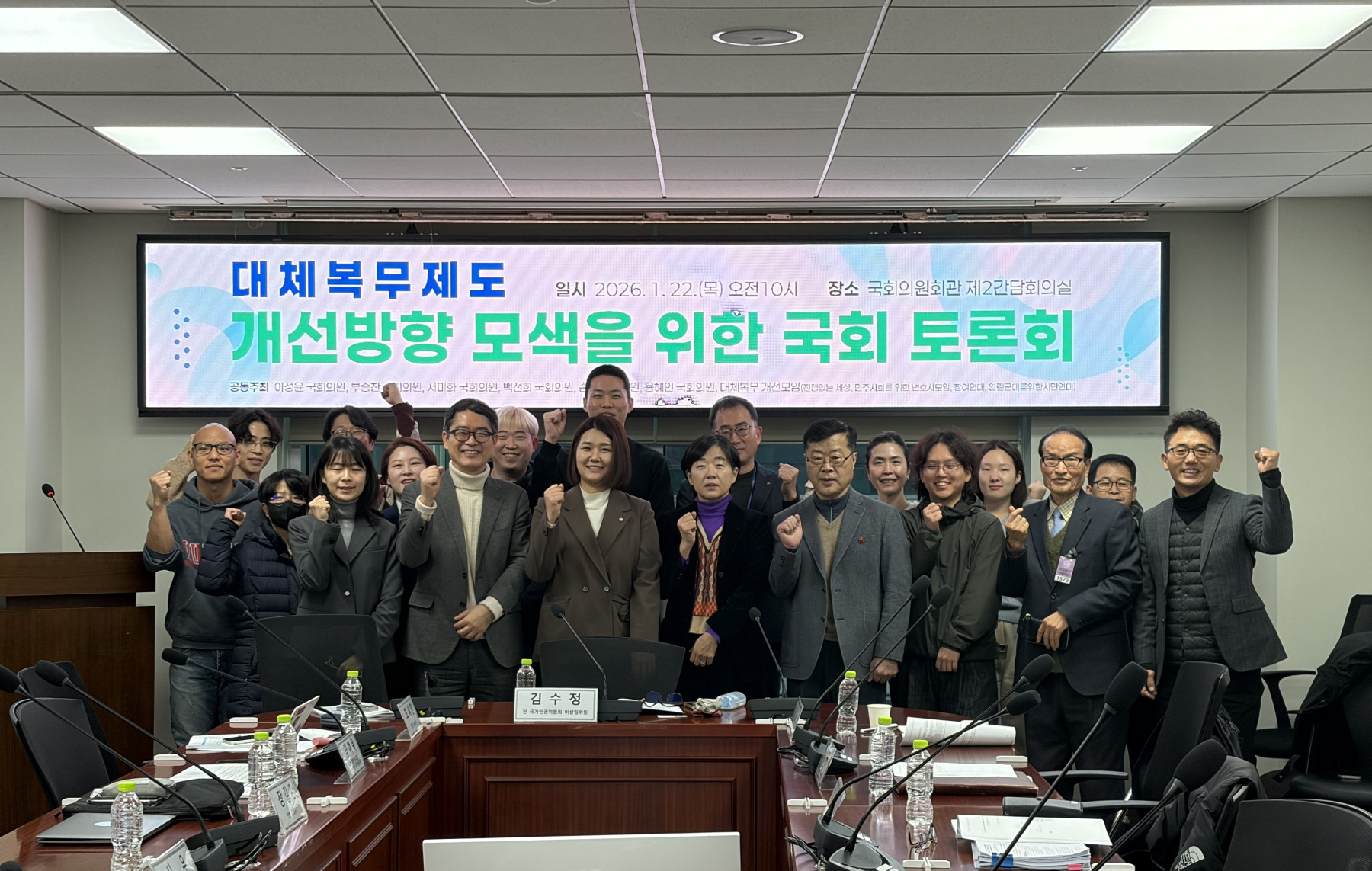지난 1월 10일 청주지방법원은는 예비군 훈련 거부자에게 무죄판결을 선고했습니다. 병역거부자에 대한 무죄 판결은 2017년 들어서 벌써 두 번째(첫 번째는 1월 5일 전주지방법원 )이고 예비군 훈련 거부에 대한 무죄판결로는 2004년 서울남부지법에서의 무죄판결 이후 13년만입니다.
예비군 훈련 거부자는 향토예비군이 설치된 1968년 이래로 2010년까지 최소 897명이 양심적 예비군 훈련 거부를 했습니다.(출처: <양심적 병역거부의 문제점과 대체복무제도의 필요성> 김진한 인하대학교 법학전문대학원 교수, 대한변호사협회 인권위원회·법원 국제인권법연구회 공동학술대회) 2010년 이후에도 해마다 80여명 정도가 예비군 훈련 거부로 처벌을 받고 있습니다.
예비군 훈련 거부자에 대한 처벌은 헌법상 보장되는 양심의 자유를 침해한다는 점에서 현역 복무를 거부하는 사람에 대한 처벌과 마찬가지로 명백한 인권침해입니다. 남북한이 군사적으로 대치하는 특수한 상황에서 양심의 자유와 국가 안보의 갈등이라는 주장이 제기되기도 하지만 국가 안보라는 것이 결국에는 국민들의 기본적인 권리를 보장하는 것이라는 점을 떠올린다면, 국가 안보를 이유로 국민의 헌법상의 권리를 침해하는 것은 국가 안보의 기본 목적을 침해하는 일 입니다. 이번 무죄 판결문을 보더라도 “국방의 의무 또한 국가의 안전보장이라는 중대한 헌법적 법익을 위한 것이기는 하지만, 국가의 안전보장도 궁극적으로는 기본적 인권의 보장이라는 국가의 존재목적을 달성하기 위한 수단으로서 그 의의가 있다”고 밝히고 있습니다.
예비군 훈련 거부자를 처벌에서 특별히 더 문제가 되는 것은, 반복처벌입니다. 예비군 훈련을 거부하면 경찰조사를 받고 재판을 받고 벌금이나 실형이 선고됩니다. 그렇지만 해당 훈련이 사라지지 않고 다시 부과되어 또 거부하면 가중처벌을 받습니다. 이런 과정이 예비군 훈련 기간 내내 반복되면 나중에는 여러 건의 훈련에 대한 처벌이 계속해서 쌓여갑니다. 이러한 반복 처벌 때문에 예비군 훈련 거부자들은 적게는 수백만 원에서 많게는 1천만 원이 넘는 벌금을 납부하고 사회봉사나 실형을 추가로 감당해야 하는 경우도 있습니다. 수년 동안 수십차례 경찰서를 들락거리며 조사를 받고, 수십 차례 재판에 참석해야 하기 때문에 일상생활이 불가능합니다.
유엔을 비롯한 국제사회에서는 예비군 훈련 거부도 병역거부와 마찬가지로 양심의 자유로 인정받습니다. 유엔은 기회가 있을 때마다 한국정부에 예비군 훈련 거부자를 비롯한 병역거부자들에게 대체복무제도를 마련할 것을 거듭 권고하고 있습니다. 특히 병역거부자들에 대한 반복처벌은 일사부재리의 원칙을 명시하고 있는 국제규약 위반입니다. 한국이 당사국으로 있는 시민적 및 정치적 권리에 관한 국제규약(자유권규약)의 이행상황을 감시하는 기구인 자유권위원회는 자유권규약 제14조에 관한 일반논평 제32호에서 “군복무에 대한 거듭된 소집 명령에 응하지 않았다는 이유로 병역거부자를 반복적으로 처벌하는 것은 후속적인 거부가 양심에 근거한 동일한 항구적인 결정에 의한 것이라면 동일한 범죄에 대한 처벌에 해당할 수 있다”며 지적합니다.
이번 무죄 판결을 계기로 예비군 훈련 거부자들에 대한 심각한 인권침해인 반복처벌이 사라져야 합니다. 더 나아가 양심적 예비군 훈련 거부를 인정하고 예비군 훈련 거부자들이 다른 방식으로 대안적인 안보와 평화를 위해 공동체에 기여할 수 있는 대체복무제도를 도입해야 합니다.
2017년 1월 17일 전쟁없는세상
On January 10, Cheongju District Court acquitted a defendant objecting to the reserve service. A judgment of acquittal for those who refuse to join the army has already been given twice this year. This is the second time since 2004 that a reservist objector received a not guilty verdict. At least 897 people have refused the reserve forces training since 1968 when the Homeland Reserve Forces were established up
until 2010.
After 2010, approximately 80 people were punished every year for refusal of reserve army training. The punishment for the reservist objector is obviously a violation of human rights guaranteed by the Constitution. This issue is often discussed as a matter of choosing either the freedom of conscience or the interest of national security, which arises in a special situation of military confrontation between the two Koreas.
Moreover, if we think that the nature of national security is ultimately to guarantee the fundamental rights of the people, Infringing on these rights is a violation of the fundamental purpose of national security. Repeated punishment for the reservist objector is more problematic. Unlike the objector who refuses to join the army, the reservist objector’s duty for the training does not disappear and is re-imposed for 8 years of the reservist period even though he pays penalties for his action. This process is repeated throughout the whole training period and the punishment continues to accumulate in the future. Because of this repetitive punishment, reservist objectors may be required to pay a fine as low as a few million won and as high as ten million won plus extra social service or imprisonment. Everyday life is impossible because objectors have to go through dozens of police investigations and trials for many years.
The hope with this acquittal is that the repetitive punishments and serious human rights violations against the objectors will disappear.








![[성명] 미얀마 군부 쿠데타 5년: 징병제 부활로 심화되는 인권 위기](https://withoutwar.org/www_wp/wp-content/uploads/2026/01/myanmar-45x45.png)
![[국제공동성명] 병역거부자이자 인권활동가, 유리 셸리아젠코 탄압에 대한 긴급 성명](https://withoutwar.org/www_wp/wp-content/uploads/2026/01/123123-45x45.jpg)
![[보도자료] 대체복무제도 개선방향 모색을 위한 국회 토론회](https://withoutwar.org/www_wp/wp-content/uploads/2026/01/IMG_8696-45x45.jpg)
![[성명] 병역거부자를 가두는 나라에 양심의 자유는 존재하지 않는다 – 병역거부자 나단의 항소심 유죄 선고에 부쳐](https://withoutwar.org/www_wp/wp-content/uploads/2026/01/nadan-45x45.jpg)
![[평화를 살다] “요리하고 먹고 저항하라” – 팔라펠과 후무스](https://withoutwar.org/www_wp/wp-content/uploads/2026/02/5-45x45.jpg)
![[평화를 읽다] 역사를 품은 그림, 쓸쓸함을 알아차리는 다정함 – 『어느 쓸쓸한 그림 이야기』를 읽고](https://withoutwar.org/www_wp/wp-content/uploads/2026/02/book-45x45.jpg)

